As your comfort companion in every season, you expect your air conditioner to operate perfectly. However, if AC Not Turning on and you are facing issues regarding your AC, please follow the methods mentioned below to fix your AC and get it back to work.
When your AC Not Turning on. Then don’t panic if you’re in the same boat! Sometimes, it might be possible to fix the problem on your own or maybe even with the help of a professional.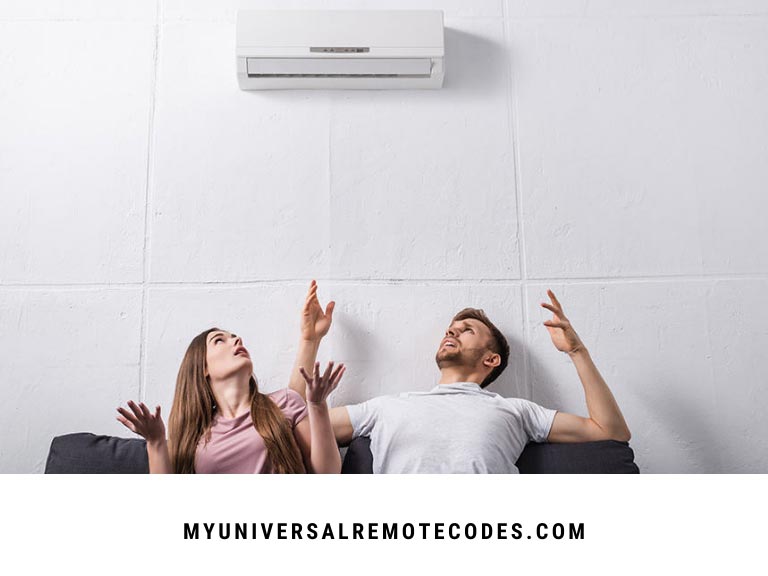
A variety of reasons can result in your AC Not Turning, and we have compiled a list of what can cause this to occur, as well as how to troubleshoot this problem.
Table of Contents
1. Thermostat Malfunctioning
You have suddenly lost the ability to use your air conditioner. Panic sets in and you begin looking for an air conditioner expert.
Let’s pause for a moment. Has your thermostat been checked?
It is possible for your air conditioner to malfunction when your thermostat not turning on ac.
Your thermostat should be lit up if it has a display. It is impossible to turn on the AC without it. In the case of battery-operated thermostats, you must check the batteries.
Check whether your thermostat is working if your batteries are fine. Make the indoor temperature 5-6 degrees lower by setting the air conditioner to a cool setting. Placing your hands in front of the AC vane may ease the cold. As long as the device is turned on, the issue is solved.
You can test its components by first turning off your thermostat and removing its cover if your AC still failed to turn on. Check for corrosion or debris. You should also check for blown fuses; these are sometimes the cause. A soft brush will suffice to remove debris, but you’ll need to contact a pro if corrosion is an issue.
In addition, make sure that the thermostat does not have any loose screws or wires. To determine which wiring schematics to use, consult the user manual.
You may also love to read: Chromecast Keeps Disconnecting
2. Low on Refrigerant
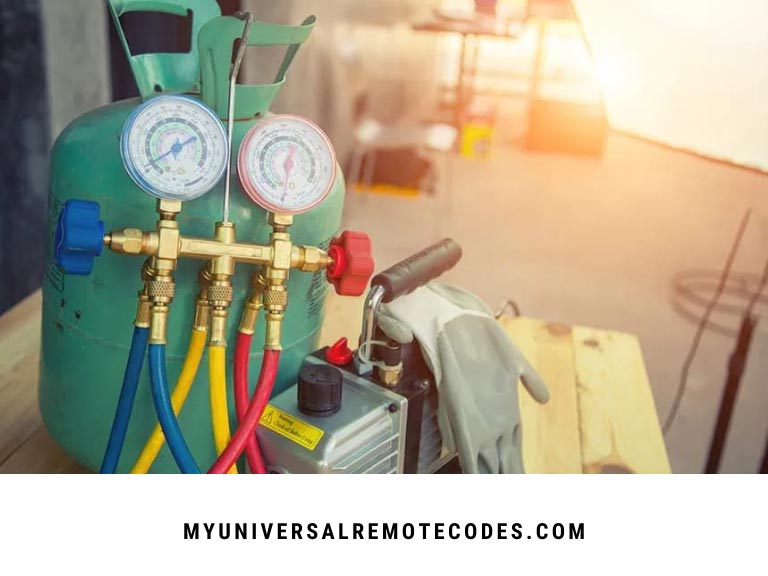 A refrigerant shortage could be the cause of your air conditioner not working.
A refrigerant shortage could be the cause of your air conditioner not working.
A Refrigerant is the cooling fluid inside an air conditioner. Air conditioning units or heat pumps deliver cool or hot air through this component.
You do not have a refrigerant shortage because your air conditioner is draining the fluid. In this case, leaks are likely to be the cause. Cracks may develop in the AC coil over time, resulting in leakage. It is also important to note that not maintaining your equipment regularly can result in corrosion.
When it comes to refrigerant levels, you cannot simply fill the tank as they must match the manufacturer’s specifications precisely. To check the refrigerant levels and determine why the leak is occurring, you would need the services of a professional.
By maintaining your air conditioner regularly, you can prevent this issue from occurring in the future.
You may also love to read: Altice Remote Blinking: How To Fix?
3. Clogged Air Filters
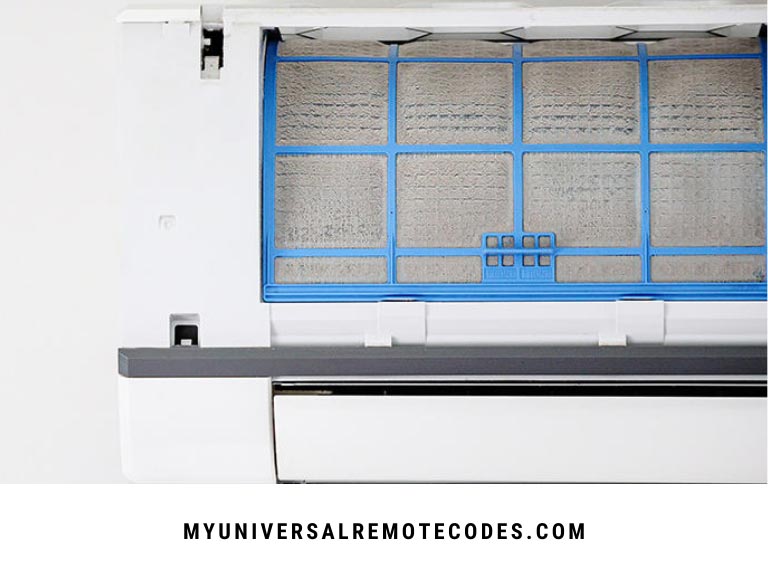 When were you last able to clean your air conditioner’s air filters?
When were you last able to clean your air conditioner’s air filters?
Your air conditioner may not function properly if its air filter is dirty and clogged up. If this is the case, then your system is at risk. Air conditioner filters must always be cleaned, regardless of the type!
In order to maintain proper air circulation, filters are necessary. Clogged filters will almost completely block airflow. It can be hard for your system to cool your home in this case, and the system can eventually stop working.
Air filters that are dirty can also cause your outdoor AC unit to freeze, which inhibits the system’s functioning and, in some cases, prevents it from turning on.
Strange, but true.
Indoors, your AC’s evaporator coil is located, while outdoor, it’s compressor is located. Its refrigerant line connects the two. The refrigerant cannot be cooled with warm air from your house when the airflow is restricted. As a result, any moisture on the coils freezes due to the freezing of the refrigerant.
You do not need to be alarmed despite the fact that it is frightening. If the filter needs to be cleaned, you can contact a professional or do it yourself. Make sure that you collect the water properly after the ice on the coils melts. When you turn the air conditioner on, let the filters completely dry.
Using a smart thermostat or an AC controller, you can monitor the filter level on a ductless mini-split. Filters can clog in the future if continuous monitoring is not conducted.
You may also love to read: Alexa Device Is Unresponsive: How To Fix?
4. The capacitor in your AC has died
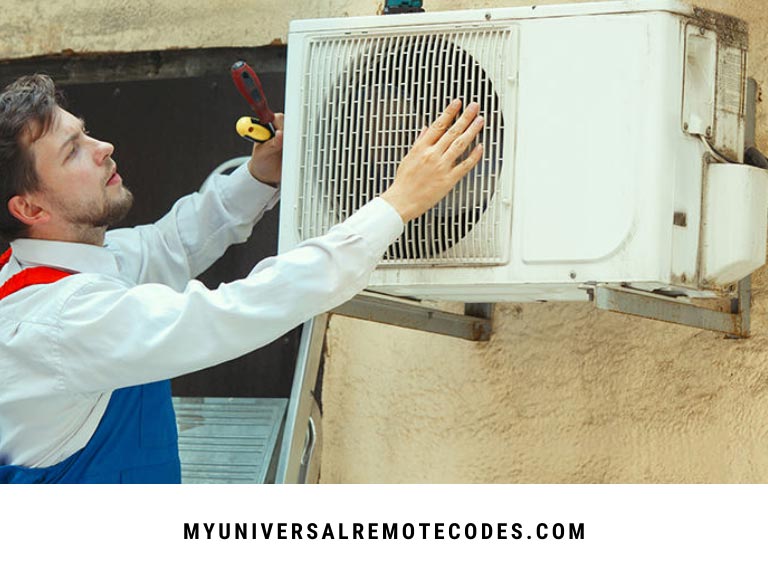 It is likely that the capacitor in your AC has died if your HVAC unit won’t start or if it starts abruptly and stops abruptly.
It is likely that the capacitor in your AC has died if your HVAC unit won’t start or if it starts abruptly and stops abruptly.
HVAC systems are not complete without capacitors. An initial push of torque is sent to the motor by this device, which is connected to the circuit of the motor. After a certain speed is reached by the motor, the capacitor will be disconnected from the circuit.
There are two types of capacitors:
- In order for the motor to start, voltage is provided by the start capacitor
- Keeping them running requires energy from the run capacitor
What Causes the Capacitor to Fail?
It is very important to keep the capacitor of your air conditioner cool. An AC that works hard to reach the desired temperature may overheat, or exposure to the sun may cause it to overheat. On hot summer days, your outside unit might be damaged by overheating if it’s situated on the roof.
When temperatures are very cold or very warm, you should avoid setting your thermostat to the highest or lowest setting. This can also strain the unit, resulting in an overheated capacitor.
Capacitors can also be significantly damaged by power outages and power fluctuations. A surge protector can prevent these damages.
As the capacitor loses its ability to store energy as it ages, the process can also die down.
The fact that you can detect capacitor problems early with regular maintenance is important as far as the age is concerned. You can have the capacitor replaced by an electrician.
Never attempt to replace the capacitor yourself since there is a large electrical charge stored within it. You could suffer serious electrical shock if you do so. A bad capacitor can burn the motor that is connected to it, making the replacement of the motor quite costly. Never run your AC on a bad capacitor.
You may also love to read: Samsung TV Volume Not Working Or Stuck
5. Dormancy Issue
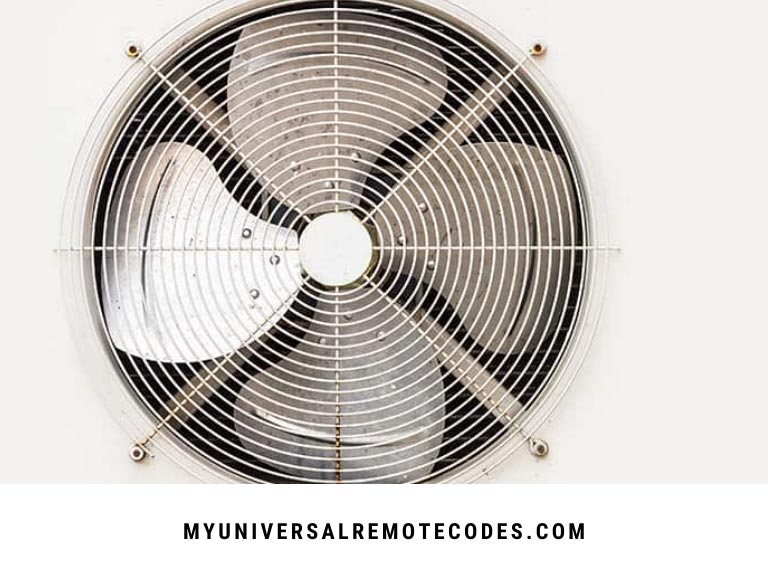 You should check the fan if you are unable to figure out why your AC isn’t working. A dormancy issue may be causing the AC fan not to turn on. If you turned your cooling system on again after an extended period of time when it was dormant, then dirt buildup may cause your fans to have trouble rotating again.
You should check the fan if you are unable to figure out why your AC isn’t working. A dormancy issue may be causing the AC fan not to turn on. If you turned your cooling system on again after an extended period of time when it was dormant, then dirt buildup may cause your fans to have trouble rotating again.
You can manually start the fans by calling an HVAC expert. If the fans are awakened, the problem should not persist.
6. AC Not Turning On? Check your switch
People ignore it all the time, even though it’s the most obvious reason.
Like any other electric appliance, your air conditioner can also be turned on and off. A switch will be nearby where you installed the system.
It may not have been you who turned it off, but in your home there might have been someone who did. Before doing anything else, check the power switch whenever your system won’t turn on. The solution to this is an easy one, simply turn on the switch, and you’ll soon be breathing in a fresh breeze!
You may also love to read: Honeywell Thermostat Flashing “Cool On”
7. Uncleaned Condenser
Are you having trouble turning on your external AC unit?
AC condensers are usually located outside or outside of your house. The external heat exchanger is responsible for releasing the heat generated inside the indoor unit.
Regular maintenance is necessary to keep a condenser from getting dirty. It will become more difficult to spread the heat since the dirt will act as an insulator. Therefore, your AC will stop working when the condenser begins drawing too much current.
Although you can clean the condenser yourself, it is no longer possible to do so. Once the machine becomes unusable due to dirt, it may be time to have it cleaned professionally. It is far worse than dirt on the coils to damage the compressor coil’s fins when the coils are not cleaned properly.
If you wish to prevent major issues, you can always clean your condenser yourself as a routine maintenance.
You may also love to read: How To Stream From Phone To Tv Without Wifi?
8. Tripped Circuit Breaker
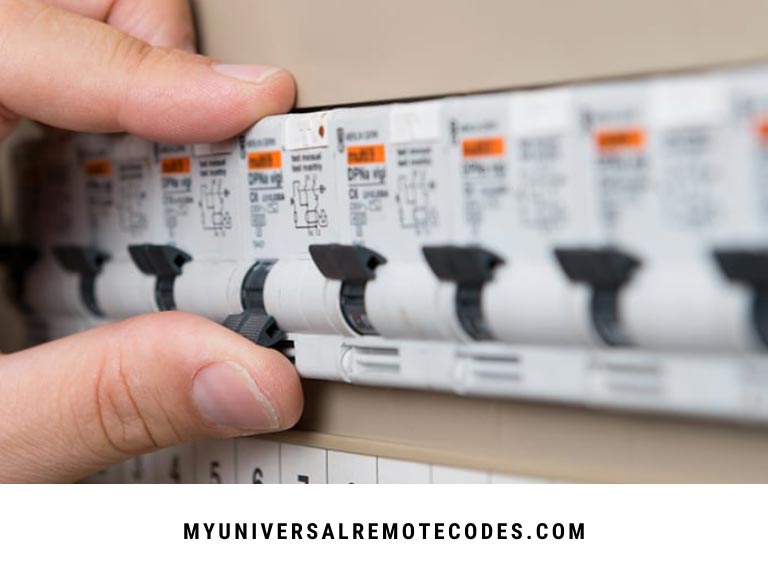 Circuit breakers will prevent your AC from turning on if you have tripped them.
Circuit breakers will prevent your AC from turning on if you have tripped them.
In case your air conditioner isn’t working, check your circuit breaker.
Circuit breakers cut off electricity when there is excessive voltage. There may have been power surges in the electricity grid or high-voltage appliances are causing the problem.
It’s easy to turn off the air conditioner by locating the circuit breaker. Wait a few minutes, then turn it back on.
Safety tip: It indicates a high voltage and may cause an electric fire if it keeps tripping. If it keeps tripping, do not attempt to turn it on. Contact an expert to fix the problem.
You may also love to read: Samsung Galaxy S30 Ultra 5G 2022
9. Why does my air conditioner not turn on?
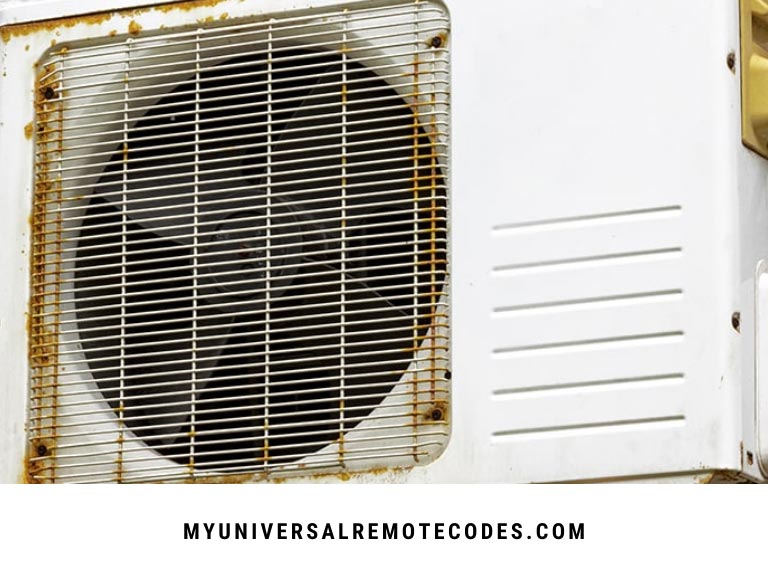 You aren’t sure why your air conditioner stopped working, and you don’t know what to do. If it has been your comfort companion for quite some time, it may have reached the end of its life.
You aren’t sure why your air conditioner stopped working, and you don’t know what to do. If it has been your comfort companion for quite some time, it may have reached the end of its life.
Nonetheless, When should you replace your air conditioner?
Your AC Not Turning for the following reasons:
- Your AC’s airflow has decreased significantly. It may be time to replace your AC if you aren’t able to solve the problem with cleaning your AC filters.
- Repair services for your air conditioner are necessary from time to time, which could give you a clue about how long your AC will last.
- You are experiencing an abnormal increase in your bills. With the end of its life approaching, the air conditioner becomes sluggish and overworks to keep the room at a warm temperature, causing the utility bill to skyrocket. You might want to consider having an energy audit performed to find out if it is the air conditioner that is increasing your bills.
- Your AC leaks excessively from the inside. Perhaps a refrigerant leak is to blame, but if the issue is not resolved, then it is time to dispose of the unit.
- A loud noise coming from your AC, such as grinding, screeching, rattling, is a sign that it needs to be replaced.
- Your air conditioner emits a bad smell. If the smell does not go away, consider replacing your unit. It may be the result of mold growing inside the unit or dirty filters.
An AC that is more than a decade old is definitely in need of replacement when you experience one or more of the above symptoms. If you decide to replace your unit, let a professional inspect it thoroughly before you make the decision.
You may also love to read: AT&T Broadband Light Blinking Red
10. Clogged Drain Pan
Additionally to cooling or heating your home, your air conditioner removes moisture from the air. However, what happens to this moisture?
The condensate flows into the condensate drain line outside after collecting in the drain pan beneath the indoor unit’s evaporator coil.
In humid climates, particularly in areas with high humidity, drain pans often become clogged. Drain pans have a secondary drain to prevent them from becoming clogged. However, if they are both full, the float switch will be triggered, which will shut off the AC. You can use it to avoid excessive leakage within your home and to protect your unit from damage. Despite the fact that the pan is not clogged, water leaks from the bottom and damages your walls, ceilings, and furnishings.
You won’t be able to turn on your air conditioner until you clean the pan and turn down the float switch.
To avoid all that gunk, it’s definitely a good idea to contact an HVAC technician. That way, you can suction out the blockage with a wet/dry vacuum.
Don’t let this episode happen again and do regular maintenance. The routine cleaning can be handled with wet/dry vacuums; we hope that it won’t be messy!
11. Damaged Motor
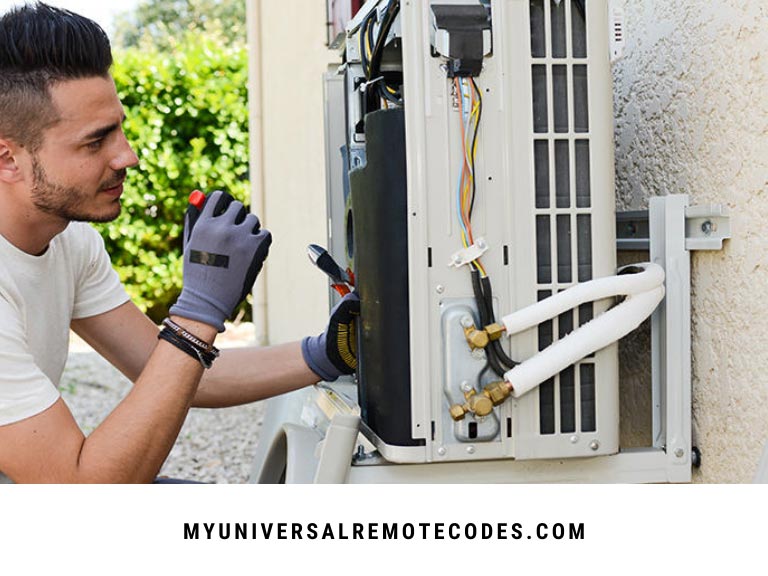 Turning on your AC and hearing grinding noises are not good signs as they can indicate malfunctioning motor blades.
Turning on your AC and hearing grinding noises are not good signs as they can indicate malfunctioning motor blades.
The seal on a motor protects the motor from exposure to air, water, or debris outside. The seal inside a motor can wear out over time, and the oil needed for lubrication that was sealed within it seeps out due to aging or a lack of maintenance. Motors can wear out without oil and eventually cease to function. A faulty motor prevents the outside unit from dissipating heat.
What do you do if you have a problem with your motor or need to replace your air conditioner?
It’s easy to decide when it costs half what the original system cost: if it’s a replacement, replace your system if it’s at half the price. The price for a new motor ranges from $150 to $750.
A professional HVAC technician should inspect your system thoroughly.
You may also love to read: Spectrum Self Installation
12. Faulty Power Cord or Outlet
When something seems minor, you tend to expect the worst. Thus, you should always pay attention to the things in front of you; for example, take a look at the power cord.
The power cord may become frayed and damaged after a long period of storage. A power outage may also lead to damage.
The cord needs to be disconnected for proper examination. It must be replaced if damage is apparent.
Maybe it was the plugged-in outlet and not the cord. Plugging in other appliances will allow you to determine if the outlet is functioning properly. It is clear what is causing the issue if none of these work.
If the outlet is damaged, call an electrician to repair or replace it.
Safety tip:
If you have a damaged power outlet or cord, you should never try to repair them yourself. Without turning off the power supply, you may get an electric shock. You don’t need to turn off the switch; you must turn off the main power supply.
You may also love to read: DirecTV Remote Not Working?
13. Your AC Is Not the Right Size
When you purchased an air conditioner, did you consider its size? There is one mistake that is routinely overlooked but has a significant impact on a HVAC system’s performance.
When the air conditioner is not sized correctly, it has to work harder and eventually breaks down.
If your air conditioner is too large, it will continue to turn on and off rapidly, causing wear and tear. Also, because it does not stay on for a long period of time, it will not remove excess humidity.
Smaller units need to run for a long time to cool or heat a home, which can result in the capacitor overheating.
In addition, a system that is not sized correctly can make your bills skyrocket.
Unfortunately, there is no alternative to replacing the unit.
Size depends on factors such as the size of your house, the climate, how many windows you have, and how well it is insulated. To find out the right air conditioner size for your home, you should have a professional evaluate it.
The right size of AC can also be estimated using an equation.
(Sq. feet x 25/12000) – 0.5 = Required AC size of your home
You have a 1000 square foot area.
(1000×25/12000) – 0.5= 1.5
You require a 1.5-ton AC.
You solved the problem on your own and figured out why your AC Not Turning. Congratulations! However, we still recommend that you have a complete inspection performed by a professional to prevent similar issues in the future.
You can prevent potential AC Not Turning problems in the future by scheduling annual HVAC inspections and keeping on top of your maintenance routine.
